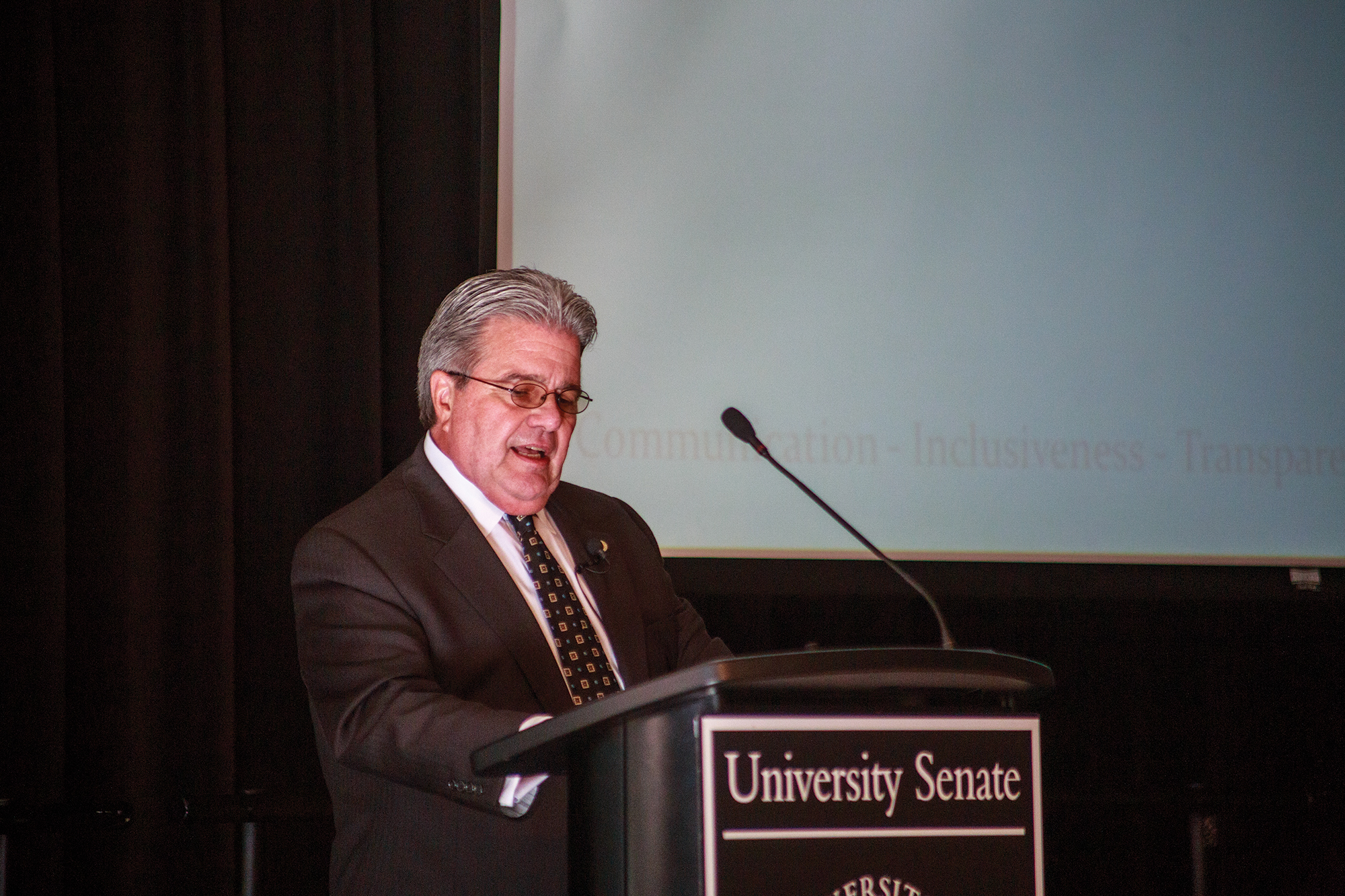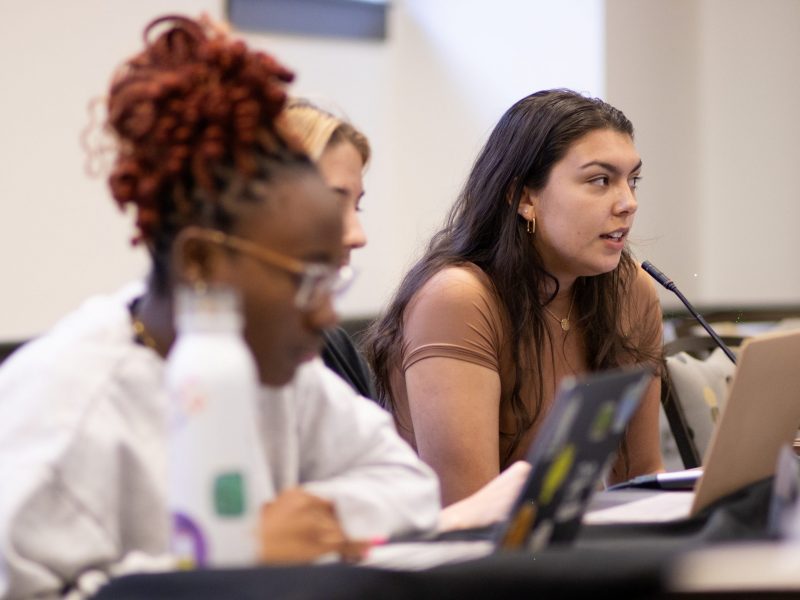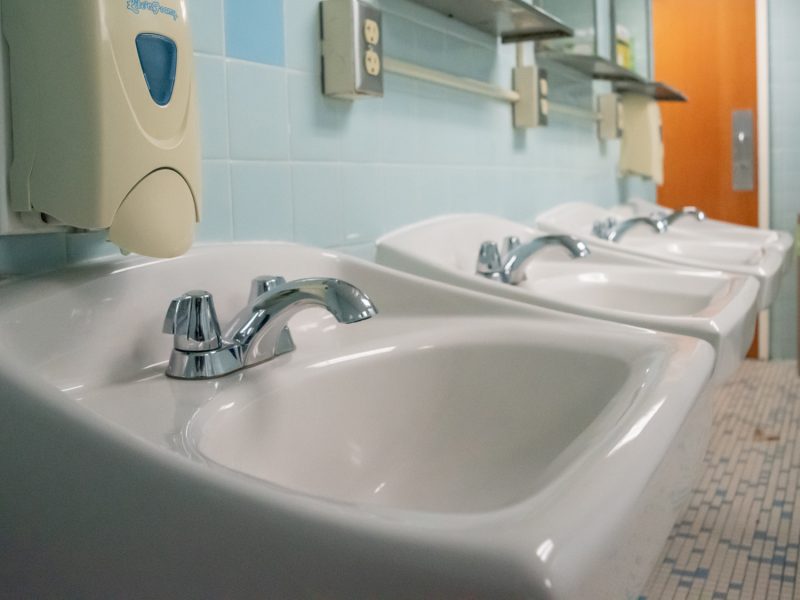State enhancement funding provided by the University System of Maryland will be used to bolster resources for transfer students at this university, system Chancellor Robert Caret said.
In January, Gov. Larry Hogan requested $6.8 million in enhancement funding for colleges in the state of Maryland. The funds were divided between 17 different universities in this state, Caret said, and $1.5 million was allocated to this university to enhance its programs for transfer students.
“When we worked with the governor’s office, we went back and forth on how to best use the funds and we gave him several ideas,” Caret said. “The governor chose to fund the college completion agenda.”
The college completion agenda is to increase the number of graduates coming out of the colleges by focusing on two agendas, which is taking programs that are already successful but providing more resources to enhance the program and taking institutions that are not producing at the level the system would like and help them, he added.
For this university in particular, the money that was given will focus on four different projects. All of these programs will start these new changes this coming fall.
The first of these projects is expanding the university’s pre-transfer advising program by having an adviser from this university permanently at community colleges like Montgomery, Prince George’s, Anne Arundel and College of Southern Maryland to assist those students, said Lisa Kiely, assistant dean of undergraduate studies.
“The advisers would get to work even closer to the students to make sure that they are taking the classes they need to that are used to earn the degree are the lower level classes needed for the students intended major,” she said.
Advancing this initiative will allow the students to save money and time while completing their education, Kiely added.
“We want the students to be able to save their time and money buy allowing them to take as many courses that they can while at the community college, so that when they come [to this university] they will enter prepared to take upper level courses,” she said.
The engineering school will use some of the funds to provide summer fellowships for students coming from community colleges, said William Fourney, the school’s associate dean. The department received $250,000 to start this new initiative, which is already in affect, Fourney added.
“This would help them take summer courses, the immediate summer before they get to the university … half of our departments only offer the courses once a year and therefore when a student comes from a community college and they have to take a very specific course at the sophomore level before they get to the junior level … they will come in as a junior and hopefully finish their degree in two more years,” he added.
STEM departments on the campus also plan to send their advisers to community colleges once a semester to talk to prospective students about what they need to complete before they transfer, Fourney said.
“We will send our advisers to the community colleges and that adviser — we will make known to the students that that adviser is for a specific field — is going to be there to meet and try to help the students plan out their curriculum to finish their degree faster,” he said.
STEM departments will also explore having the professors that teach the same class at both the community college and this university meet so the curriculum between the two can be seamless, he added.
As a result of the new funding, this university developed the Maryland Transfer Scholarship to provide students with additional merit and need-based scholarship opportunities, Monique Boyd, the director of financial aid wrote in an email. Each year, 200 students will be selected to receive this scholarship, she added.
“This one to two-year scholarship is available to outstanding students transferring from Maryland community colleges,” she wrote. “The annual award is up to $5,000 and is determined through a competitive process based on academic talent and financial need.”
While not familiar with the $1.5 million figure that was given to the campus, Boyd wrote that the office of financial aid received $900,000 for the Maryland Transfer Scholarship program.
A program like this would allow this institution to remain committed to recruiting, admitting and enrolling talented transfer students from Maryland community colleges, she added.
Although there was no one to talk with about providing transfer students with financial assistance so that they can partake in enrichment opportunities, this project has been approved as one of the four focus points for the funding at this campus, according to the system’s website.
CORRECTION: Due to a reporting error, a previous version of this story stated that two advisers from this university will be placed in four area community colleges including Howard. Only one adviser will be placed, and the fourth college should instead be the College of Southern Maryland. The story has been updated to reflect this correction.



